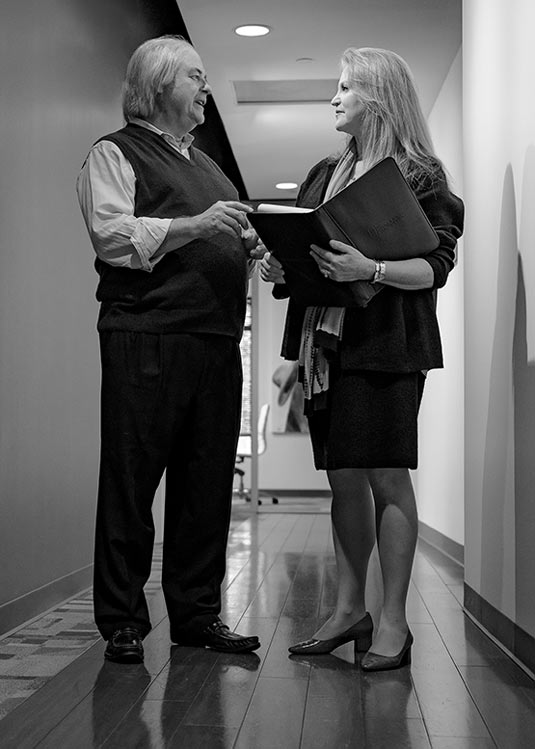Experienced Atlanta Medical Malpractice Lawyers
Medical professionals, including doctors and nurses, have a responsibility to make a proper diagnosis and provide quality medical services. When they fail to meet that responsibility and patients are harmed, those victims have a right to seek full and fair compensation. Malpractice cases are complex. Our experienced Atlanta medical malpractice lawyers at Hilley & Frieder, P.C., have been helping clients throughout Georgia with personal injury, medical negligence and medical malpractice claims for over 35 years.
Our Team Pursues All Types Of Medical Negligence Claims
Our medical negligence and medical malpractice lawyers handle a broad range of medical malpractice claims throughout Georgia, including:
- Failure to diagnose breast cancer: If a doctor has misdiagnosed or failed to properly diagnose breast cancer, then you have a right to seek damages for their serious errors.
- Failure to remove objects: Failing to remove sponges, catheters and other objects left in patients after surgery can lead to infection or worse.
- Failure to diagnose a heart attack: Improperly diagnosing a heart attack can be life threatening.
- Traumatic brain injury: If a surgeon or doctor has inflicted further injury to you or your loved one’s brain, you may have an action for damages against them and the hospital.
- Nerve damage: All too often, surgeons will unintentionally cut nerves or leave instruments behind that cause nerve damage.
- Misdiagnosis: Misdiagnosing any disease can lead to serious injury and even death. Doctors should be held accountable for these negligent acts.
- Surgical errors: Errors in surgery are unacceptable. The stakes are high enough already without a doctor acting negligently.
These medical malpractice cases can be very complex and expensive. If you are seeking compensation from those responsible for your injuries, you need a team with the ability to analyze all the issues involved and successfully represent your interests at trial.
How Do You Prove A Medical Malpractice Claim?
In a medical malpractice case, the burden of proof rests with the injured patient (the plaintiff). This means that if you file a lawsuit, it is up to you or your lawyer to prove the elements of your case. You will need to prove your case by a preponderance of the evidence, which means that you need to provide clear and convincing evidence. Evidence that can support your claim includes:
- Your medical records and documents
- X-rays and medical test results
- Photographs and videos
- Notes from doctors and nurses
- Signed eyewitness statements
- Testimony from medical experts
Medical expert testimony is often vital evidence for malpractice claims in Georgia. A medical expert can confirm that the defendant named in the case did not do what a reasonable and prudent doctor would have done under the same or similar circumstances, for example. Working with a lawyer can make it easier to preserve, collect and present key evidence to support your medical malpractice lawsuit.
Georgia’s Statute Of Limitations For Medical Malpractice
All civil lawsuits must adhere to the statute of limitations, which is a rule that places a deadline by which you must file your claim. In Georgia, you have two years from the date of the negligence to file a medical malpractice lawsuit. If you do not file within this time period, then the court will dismiss your lawsuit – and you will lose your chance at collecting any monetary damages.
There are some exceptions to the two-year time limit. These include the following:
- If you did not know about the malpractice until a later date, then the state will extend the statute of limitations up to five years after the actual malpractice occurred.
- If you discover a foreign object in your body, such as a surgical instrument, then you have one year from the date that you discovered the foreign object to file your claim.
Georgia does not allow plaintiffs to file medical malpractice lawsuits more than five years after the date of the negligence. It is important to speak to a lawyer as soon as possible to ensure that you meet any potential filing deadlines.
How Our Medical Malpractice Attorneys Can Help You
You’ve been through enough as the victim of malpractice. Allow our medical malpractice attorneys in Atlanta to take care of the legal process for you so that you can focus on healing. A lawyer can handle issues connected to your case that require legal knowledge and skills, such as filling out confusing legal forms and dealing with insurance companies on your behalf.
A lawyer can also answer your questions and help you understand all your legal options so that you can proceed with better peace of mind. The right medical malpractice lawyer can increase your odds of case success, negotiate for maximum compensation and resolve the matter in your best interests to help you move forward.
Schedule Your Free Case Evaluation And Consultation
Call 404-795-6099 today to discuss your situation with an Atlanta medical malpractice attorney. You can also send us an email through our convenient online form. We offer a free consultation to discuss your options and only collect attorney fees out of any compensation our team recovers for you.


